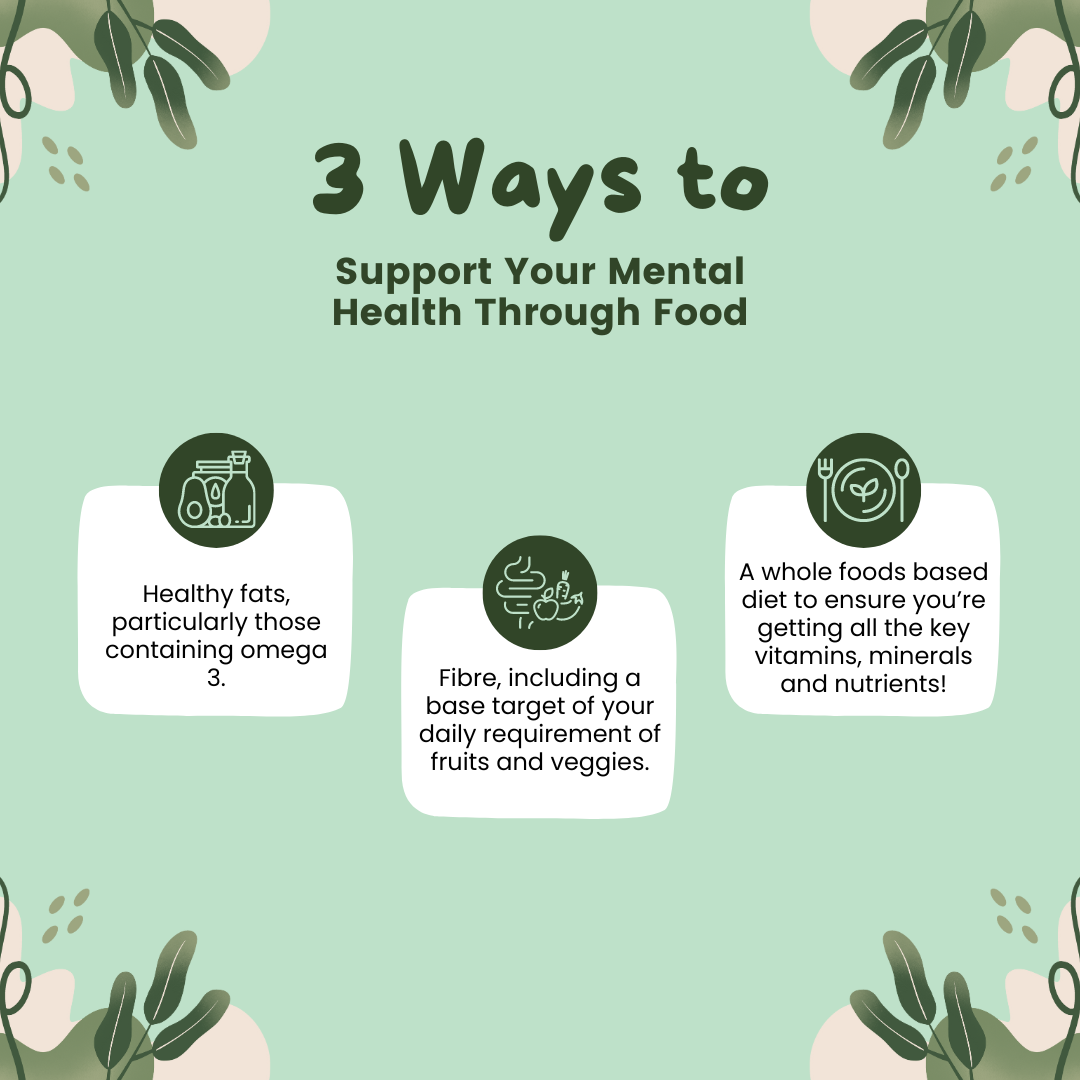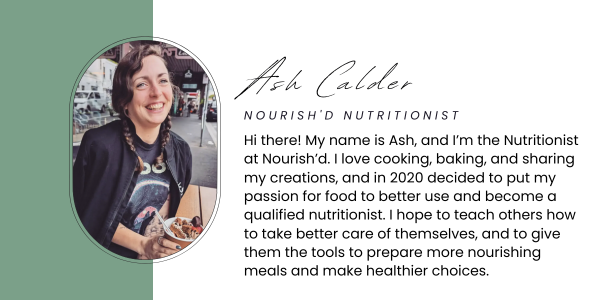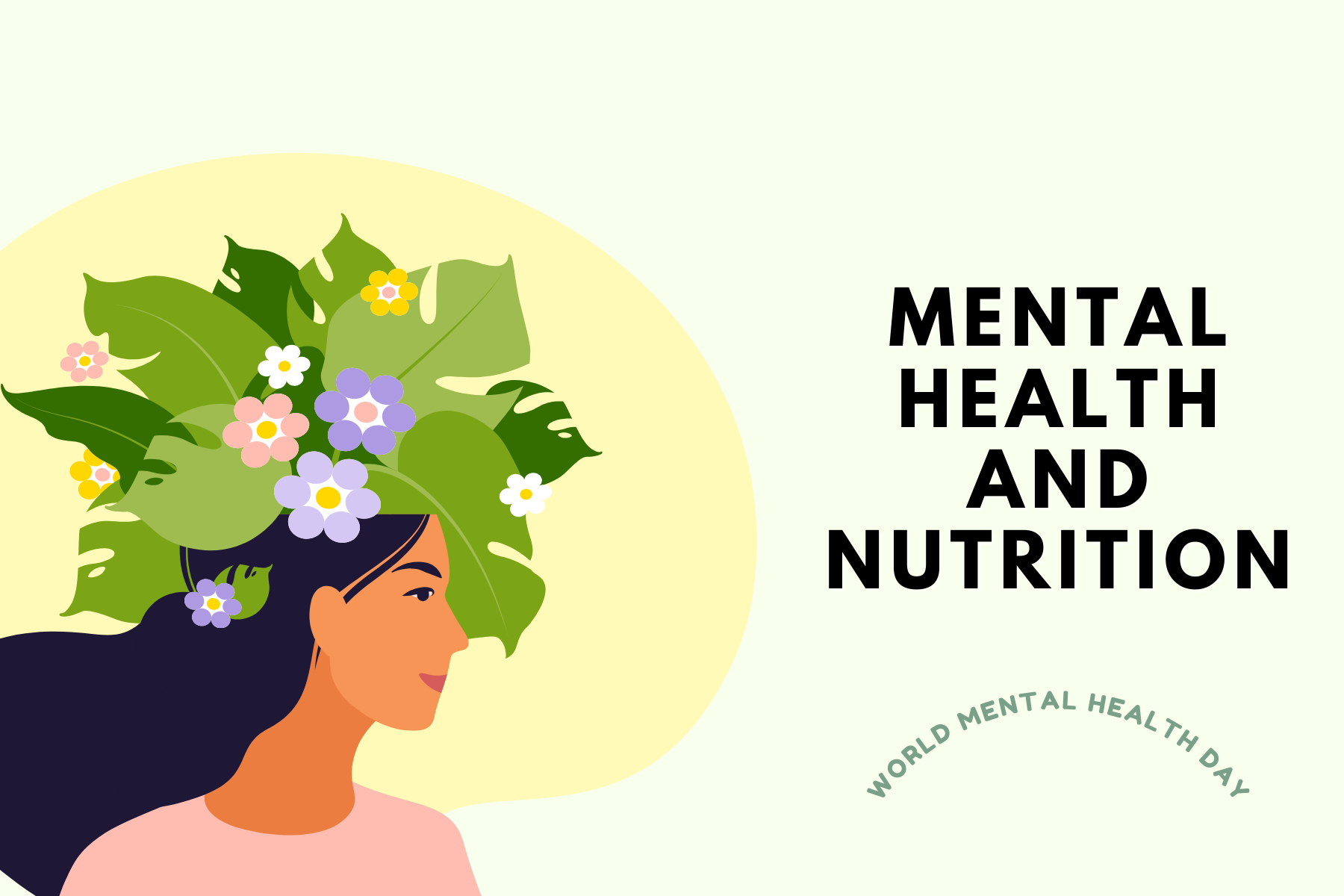October 10 marks World Mental Health Day, a global request to raise awareness and advocate for better mental health care for all. Mental health influences how we handle stress, relate to others, and make decisions, and when we neglect it, it can lead to challenges like anxiety, depression, and burnout. However, there are many strategies for maintaining and enhancing mental health, such as staying active, managing stress, and fostering social connections.
One essential yet often overlooked factor though is nutrition. What we eat doesn’t just affect our physical health; it plays a crucial role in how we feel mentally.
How Nutrition Impacts Mental Health
The relationship between food and mental health is becoming increasingly clear, showing that what we consume can directly impact our brain function and mood, particularly what nutrients we consume (check out our blog on the Gut-Brain Connection!).
Here are some nutrition tips that can support mental well-being:

-
Healthy Fats - particularly omega 3 fatty acids! We recommend including foods like avocados, seeds, nuts, salmon and other fish, canola oil and olive oil. Nuts and seeds also provide magnesium known for assisting in brain function, stress reduction and relaxation.
-
Fibre - make sure you consume your minimum daily requirements of fruit and veg! Whole grains are also very beneficial here to support steady blood sugar levels and contribute to consistent energy.
-
A general wholefoods diet - eating a balanced diet rich in unprocessed, whole foods gives the brain (and gut!) key nutrients like the aforementioned few, plus B vitamins and iron. Studies have even shown that the risk of depression is 25% to 35% lower in those who eat a traditional diet (ie, Mediterranean or Japanese) vs those who eat an average “western” diet.
By taking the time to prioritise your mental health through daily practices, including nourishing your mind with good food, you can start taking small steps towards significant improvements in your well-being - and this is something Nourish'd can help you with!
As always, this is general advice, and should you encounter serious concerns with your mental health, please consult a professional.



